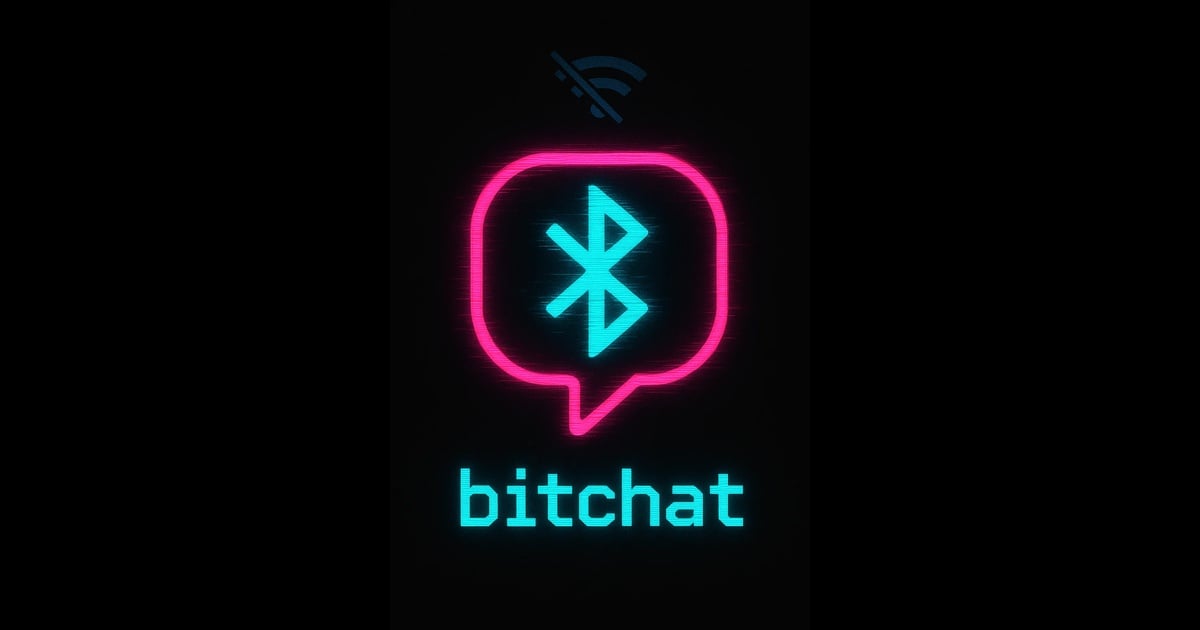Jack Dorsey, the visionary behind Twitter who donated a staggering $1 billion in 2020 to aid in the fight against COVID-19 and who made a low-profile visit to Cuba in 2018, has introduced a groundbreaking application that could be a game-changer for Cubans striving to communicate beyond the reach of state control: Bitchat. This messaging app defies conventional requirements by operating without the need for internet, servers, or even phone numbers.
The launch of this innovative app comes shortly after the enforcement of Resolution 9/2025 in the island, a regulation granting the Cuban regime the power to shut down websites and publications without prior notice if deemed to "gravely violate socialist principles."
The Mechanics Behind Bitchat
Bitchat is described by NBC News as a peer-to-peer messaging system that utilizes Bluetooth networks between nearby devices. It bypasses servers, refrains from collecting data, and offers ephemeral and encrypted messages. It also supports password-protected group chats, with future versions set to include WiFi Direct for enhanced range and speed. This concept is especially resonant in Cuba, where digital surveillance, network blackouts, and repression of the independent press are everyday occurrences.
Potential Impact in Cuba
In scenarios where mobile data access is restricted, such as during the July 11, 2021 events or protests like those in Santiago de Cuba and Bayamo in March 2024, Bitchat enables individuals within the same geographic area to exchange messages without external connections. As users move, their devices can connect with other nearby nodes, extending the Bluetooth network and bridging gaps between groups even when not all users are directly connected. This capability opens the door to maintaining communication in hostile or fully censored environments.
Similar applications were effectively used during the 2019 Hong Kong protests, where demonstrators successfully avoided Chinese regime censorship and coordinated activities without internet access. This further underscores Bitchat's potential utility in authoritarian contexts like Cuba.
Current Challenges for Free Speech in Cuba
Meanwhile, on the island, the government of Miguel Díaz-Canel continues to bolster its legal arsenal against freedom of expression. Resolution 9/2025 allows the closure of sites without prior notification, imposes harsher penalties on those who persist in publishing, and mandates hosting providers to work only with officially registered media, effectively sidelining nearly all of Cuba's independent press. Additionally, it demands control over media funding sources, another attempt to stifle projects outside the state's grasp.
The regime is unabashed in its intent to "organize" the informational ecosystem. However, many Cubans recall that this same term was used with the Tarea Ordenamiento, which plunged the country into an economic and social collapse from which it has yet to recover.
Jack Dorsey's Commitment to Decentralization and Cuba
Jack Dorsey is no stranger to the issues plaguing the island. In 2018, he shared images from his trip to Cuba featuring classic cars, murals, and facades. Although he didn’t appear in any photos, his post "From Cuba" with a Cuban flag sparked controversy. Some accused him of overlooking repression, while others perceived a genuine interest in understanding the impact of limited connectivity on the island.
Two years later, in the throes of the pandemic, he donated 28% of his personal fortune to combat COVID-19 and support causes like girls' education and universal basic income. His development of Bitchat seems to be a natural extension of his vision: technology that empowers, safeguards privacy, and withstands censorship.
For a populace that has witnessed platforms being blocked, influencers detained, and independent media censored, an application like Bitchat could be a catalyst for change, particularly in scenarios of protest, blackouts, or repression.
Understanding Bitchat's Role and Potential
How does Bitchat operate without internet?
Bitchat operates using Bluetooth networks between nearby devices, allowing communication without the need for internet or servers.
What makes Bitchat significant for Cubans?
Bitchat could enable Cubans to communicate freely and securely beyond the control of state surveillance, especially during protests or internet blackouts.
What are the implications of Resolution 9/2025 in Cuba?
Resolution 9/2025 grants the Cuban government authority to shut down websites and publications without notice, aiming to suppress independent media and free speech.
